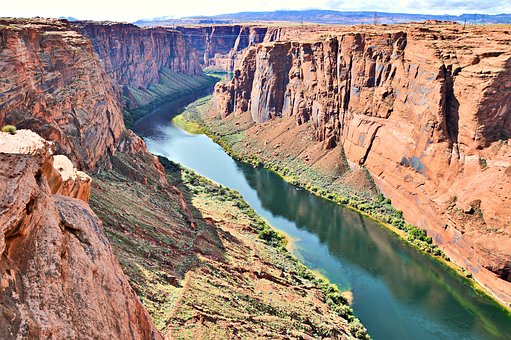This article by Will Falk was published on the Voices of Diversity website, September 3rd, 2018.
I need to come clean. When I joined Colorado River Ecosystem v. Colorado, the first-ever federal lawsuit to seek personhood and the rights of nature for a major ecosystem,my intentions were not completely sincere. The truth is, I never thought we had a chance in hell. I saw the lawsuit as an opportunity to guide concerned people through a process that would shatter their false hopes, replace them with experiential knowledge of the vast difficulties inherent in working for change within the legal system and catalyze more effective action.
The lawsuit failed, of course. The Colorado Attorney General privately threatened the attorney representing us, Jason Flores-Williams, with sanctions if he did not withdraw the case. When he refused, the Attorney General formally filed a request for sanctions with the court and a motion to dismiss in the same afternoon. Flores-Williams, afraid that he could not respond adequately to both the sanctions and the motion to dismiss, voluntarily withdrew the case.
When filing a lawsuit, however, it’s best not to proclaim publicly that you expect the case to fail. Judges jealously guard their calendars from anything they perceive to be a waste of time. Corporate and government lawyers vigilantly monitor individuals involved in cases filed against them for any opportunity to argue that novel legal theories like the rights of nature are frivolous, to label them as attempts to harass corporations or government, and to demand that they be punished with sanctions. Media pundits search for audio clips and social media posts to take out of context while accusing grassroots groups of filing lawsuits as a backhanded fundraising ploy.
At the same time, and in order to shatter as many hopes as possible, it was necessary to attract attention. No one likes a loser. If our supporters caught so much as a whiff of my true disbeliefs, when the case failed, they could mistake the failure as the result of the half-assed efforts of activists who weren’t truly committed, instead of the result of a legal system designed to protect exploitation of the natural world.
So I suspended my disbelief and dove zealously into the work. For four months, the lawsuit was my full-time job. I sifted through case law for opinions supporting our position. I wrote a portion of the document, called the “complaint,” that signaled the official filing of the lawsuit. I wrote a series of articles describing the need for the rights of nature. I gave interviews to journalists, radio hosts and members of Comedy Central’s The Oppositionproduction team.
And I bit my tongue over and over again. MORE…

